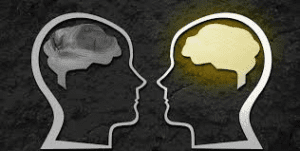Opioid addiction is a big health problem that affects millions of people around the world. It happens when someone can’t stop using opioids, even though it causes bad things to happen in their life. Opioids include prescription painkillers like oxycodone and hydrocodone, and illegal drugs like heroin. These drugs can quickly cause addiction because they strongly affect the brain.
An opioid addiction treatment center is important for getting better and taking control of your life again. There are many rehab options for people with opioid addiction. These range from detox programs to full rehab facilities. These treatments help people recover by dealing with the physical, mental, and social parts of addiction.
In this blog, we will look at the detox and rehab options for opioid addiction. We will talk about the treatment process, the medications that can help, and the aftercare services available.
What is Opioid Addiction?
Opioid addiction is a chronic condition characterized by compulsive opioid use despite negative consequences, leading to physical dependence and withdrawal symptoms.
Commonly Misused Opioids
Signs of Opioid Addiction
Recognizing the signs of opioid addiction is crucial for early intervention and treatment. Common signs of opioid addiction may include.
- Persistent cravings for opioids
- Continued use of opioids despite negative consequences
- Withdrawal symptoms when attempting to cut down or stop opioid use
- Increased tolerance, requiring higher doses of opioids to achieve the desired effects
- Social and occupational impairment due to opioid use
- Engaging in risky behaviors to obtain opioids, such as doctor shopping or illegal drug seeking
Exploring Opioid Addiction Treatment Center?
Finding opioid rehab and addiction treatment programs nearby is essential for individuals seeking recovery. These programs offer a range of services tailored to address opioid addiction, including detoxification, therapy, counseling, and aftercare support. By searching for treatment programs in their area, individuals can access the help they need to overcome opioid addiction and begin their journey to recovery.

Find Opioid Addiction Treatment Center Near You
If you or someone you know is struggling with opioid addiction, finding drug and alcohol rehab treatment near you is crucial. Many rehabilitation centers offer comprehensive treatment programs designed to address substance abuse disorders, including opioid addiction. By reaching out to local treatment facilities, individuals can take the first step towards recovery and regain control of their lives.
Opioid Addiction Treatment Options
Opioid Detoxification
Detoxification is the initial phase of opioid addiction treatment, crucial for removing opioids from the body safely and managing withdrawal symptoms. It provides a foundation for further rehabilitation efforts by stabilizing the individual’s physical condition and reducing the discomfort associated with withdrawal.
Inpatient Treatment
- Inpatient programs offer intensive care within a residential setting.
- 24/7 medical supervision and therapeutic support are provided.
- Suitable for individuals with severe opioid addiction or co-occurring disorders.
- Includes individual and group therapy, medication management, and specialized interventions.
Outpatient Treatment
- Provides flexibility for individuals to receive treatment while living at home.
- Suitable for mild to moderate opioid addiction.
- Includes regular therapy sessions, medication management, and participation in support groups.
- Allows for applying learned skills in real-life settings while receiving ongoing support.
Aftercare Services
- It is essential for supporting individuals in maintaining recovery after treatment.
- Focuses on preventing relapse and promoting long-term sobriety.
- It may include ongoing therapy, support group participation, vocational training, and housing assistance.
- Helps reinforce coping skills, address underlying issues, and build a strong support network.
What Happens in Opioid Addiction Treatment Center?
During opioid addiction treatment, individuals undergo a comprehensive process designed to address their physical, psychological, and social needs. Here’s an overview of the treatment process and therapeutic interventions commonly used.
Assessment and Evaluation
- Upon entering treatment, individuals undergo a thorough assessment to determine the severity of their addiction and identify any co-occurring mental health issues.
- Healthcare professionals gather information about the individual’s medical history, substance use patterns, and personal circumstances to develop a personalized treatment plan.
Medical Detoxification
- For individuals with opioid dependence, the treatment often begins with medical detoxification to safely manage withdrawal symptoms.
- Medical detox may involve the use of medications to alleviate discomfort and reduce cravings while the body eliminates opioids from the system.
Therapy and Counseling
- Individual Therapy: One-on-one counseling sessions allow individuals to explore underlying issues contributing to their addiction, learn coping skills, and set recovery goals.
- Group Therapy: Participating in group therapy provides opportunities for peer support, sharing experiences, and learning from others in similar situations.
- Cognitive-Behavioral Therapy (CBT): CBT helps individuals identify and change negative thought patterns and behaviors associated with addiction, promoting healthier decision-making and coping strategies.
- Motivational Interviewing: This approach helps individuals explore their ambivalence about change, increase motivation for recovery, and set achievable goals.
- Family Therapy: Involving family members in therapy sessions can address family dynamics, improve communication, and enhance the individual’s support system.
Medication-Assisted Treatment (MAT)
- MAT combines medication with behavioral therapy to address opioid addiction effectively.
- Medications such as methadone, buprenorphine, and naltrexone can help reduce cravings, alleviate withdrawal symptoms, and prevent relapse.
- MAT is often used in conjunction with counseling and behavioral therapies to provide comprehensive treatment.
Holistic Approaches
- In addition to traditional therapies, holistic approaches such as mindfulness practices, yoga, art therapy, and acupuncture may be incorporated into treatment plans.
- These complementary therapies promote overall well-being, stress reduction, and emotional healing, enhancing the individual’s recovery experience.
Education and Skill-Building
- Treatment programs often provide education about addiction, recovery, and relapse prevention.
- Individuals learn practical skills for managing cravings, coping with stress, and navigating challenges in daily life without resorting to substance use.
Relapse Prevention Planning
- Throughout treatment, individuals work with their healthcare team to develop a relapse prevention plan tailored to their unique needs and circumstances.
- This plan may include identifying triggers, developing coping strategies, establishing support networks, and accessing ongoing resources for continued recovery.
Overall, opioid addiction treatment is a collaborative and holistic process that addresses the physical, psychological, and social aspects of addiction to support individuals in achieving lasting recovery.
How Long Does Opioid Rehab Last?
- Individualized Needs: Each person’s journey is unique, with factors like addiction severity, overall health, and co-occurring conditions determining treatment length.
- Addiction Severity: The intensity of addiction correlates with rehab duration, with severe cases often requiring longer, more intensive programs.
- Co-Occurring Disorders: Mental health conditions can complicate treatment, potentially prolonging rehab.
- Treatment Response: Response to treatment varies; some progress rapidly, while others require more time to develop coping skills.
- Treatment Setting: Inpatient programs offer intensive care lasting from 28 to 90 days or longer, while outpatient programs vary in duration.
- Long-Term Support: Aftercare services, including support groups and therapy, are essential for maintaining recovery beyond formal treatment.
Opioid Addiction Medications
Medications play a crucial role in opioid addiction treatment centers, aiding in managing withdrawal symptoms, reducing cravings, and preventing relapse. Key medications include
- Methadone: Helps manage withdrawal symptoms and cravings by blocking the effects of opioids.
- Buprenorphine: Alleviates withdrawal symptoms and cravings while minimizing the risk of misuse and overdose.
- Naltrexone: Blocks the effects of opioids and reduces cravings, promoting long-term abstinence.
These medications, often used in combination with counseling and therapy, form a comprehensive approach to opioid addiction treatment, enhancing the likelihood of successful recovery.
Opioid Rehab Cost & Insurance Coverage
Understanding the financial implications of opioid addiction treatment center, including the expenses associated with rehab programs and the availability of insurance coverage. Exploring various payment options and assistance programs to make treatment more accessible.
Can opioid addiction be treated successfully?
Delving into the effectiveness of different treatment modalities and the potential for individuals to achieve successful recovery from opioid addiction. Discussing the importance of personalized treatment plans and ongoing support in the journey towards sobriety.
Is opioid addiction a chronic disease?
Examining the classification of opioid addiction as a chronic medical condition and its implications for treatment and management. Discussing the concept of addiction as a brain disorder and the need for long-term management strategies to address relapse risk and promote sustained recovery.
What are the first steps to take when seeking treatment for opioid addiction?
Guiding initiating the treatment process, including assessing readiness for change, seeking professional help, and exploring available treatment options. Discussing the importance of addressing underlying issues and building a support network to enhance the likelihood of successful recovery.
Conclusion:
In conclusion, opioid addiction treatment offers hope for individuals struggling with this challenging condition. By exploring detox and rehab options, understanding the treatment process, and accessing medications and aftercare services, individuals can embark on a journey to recovery. Remember, seeking treatment is the first step towards reclaiming control over your life and breaking free from the grips of opioid addiction.
If you or someone you know is battling opioid addiction, don’t hesitate to reach out for help. Take the first step towards recovery by contacting a reputable opioid addiction treatment center today.



